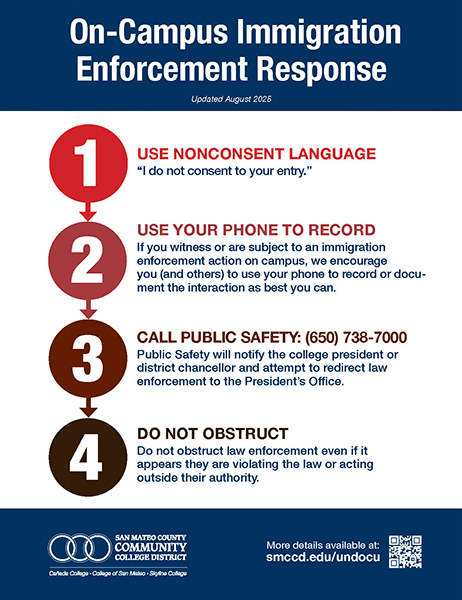Undocumented Community Resources
Overview
Updated September 22, 2025
The San Mateo County Community College District affirms under the California Constituion that all students, faculty, and staff—regardless of immigration status— have a right to privacy and the inalienable right to attend campuses which are safe, secure and peaceful. The California Supreme Court has affirmed that an immigrant student’s right to an equal educational opportunity is “a vitally important right in our society.” Protections are expressly codified in California law to assure educational access for all, regardless of a student’s immigration status
On January 25, 2017, the SMCCCD Board of Trustees approved a Resolution Affirming SMCCCD's Commitment to Protecting Undocumented Students and Student Privacy .
On January 21, 2025, the Chancellor and three College Presidents sent a joint message to the District community afirrming SMCCCD's Commitment to Supporting Our Undocumented Community.
Student & Community Resources
